Chez Santi-Shop, nous avons la nature comme modèle
Nous vous proposons ainsi des produits certifiés BDIH et/ou élaborés à partir d’ingrédients issus de l’agriculture biologique ou naturelle, conformes à des cahiers de charges visant à ces qualités et préservant l’environnement ainsi que l’avenir de notre planète et des générations futures.
Découvrez ci-dessous nos différentes certifications ainsi qu'une brève explication pour chacun d'entre eux et le lien vers les sites correspondants pour avoir des information complémentaires.
Quelles sont les certifications des fournisseur de Santi-shop ?
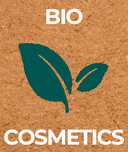
Cosmébio
Le
label cosmétique bio et naturel Cosmébio
permet de distinguer en un coup d'œil quels sont
les cosmétiques vraiment naturels ou bio .
Il se base sur un cahier des charges exigeant et une charte de valeurs éthiques. Un contrôle par un certificateur indépendant est obligatoire chaque année pour vérifier la conformité des produits.
permet de distinguer en un coup d'œil quels sont
les cosmétiques vraiment naturels ou bio .
Il se base sur un cahier des charges exigeant et une charte de valeurs éthiques. Un contrôle par un certificateur indépendant est obligatoire chaque année pour vérifier la conformité des produits.
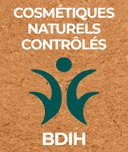
BDIH
(label Allemand)
Créée en 1951, BDIH est l’association fédérale des entreprises commerciales et industrielles allemandes pour
les médicaments, les produits diététiques, les compléments alimentaires et les soins corporels
.
BDIH comprend un groupe de travail sur les cosmétiques naturels qui a défini une charte et un cahier des charges précis concernant la fabrication des produits de beauté naturels.
BDIH comprend un groupe de travail sur les cosmétiques naturels qui a défini une charte et un cahier des charges précis concernant la fabrication des produits de beauté naturels.
Le cahier des charges BDIH est construit sur une “liste positive” d’ingrédients autorisés. Un seul ingrédient non autorisé exclut la certification du produit entier.
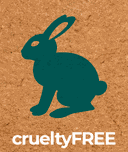
CRUELTY FREE INTERNATIONAL
(label Américain)
Des milliers d’animaux sont encore utilisés de nos jours lors de tests cosmétiques, ce
l
abel
se bat pour la fin de cette pratique au niveau mondial en allant chercher des appuis dans chaque pays pour ainsi
sauver les animaux des expériences et prôner de l’achat sans cruauté
!
Ce label vous garantit que :
Les tests des produits sur les animaux sont interdits que ce soit, du produit fini, des ingrédients composants le produit ou sur les marchés étrangers.
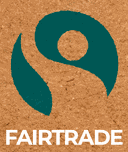
Fairtrade
Aux produits composés s’appliquent deux principes clés :
Le
label
pour un produit
Fairtrade
désigne les mono-produits (par ex. les bananes, le café, le riz, le miel ...) et les produits composés (par ex. le chocolat, la glace).
Aux produits composés s’appliquent deux principes clés :
“All that can be must be” (Tout ingrédient qui peut l’être doit être issu du commerce équitable Fairtrade): tous les ingrédients d’un produit qui sont disponibles à des conditions Fairtrade doivent être certifiés
Fairtrade. Le pourcentage Fairtrade total doit atteindre un minimum de 20%

Le
label bio de l'Union européenne
Au minimum, le logo garantit que :
est un label de qualité certifiant qu'un produit commercialisé est conforme au règlement de l'Union européenne sur l'agriculture biologique, fondé sur
l'interdiction des engrais et pesticides de synthèse
.
Au minimum, le logo garantit que :
- 95 % ou plus des composants du produit sont issus d'une agriculture biologique respectant la réglementation UE ;
- le produit est conforme aux règles du système officiel d'inspection ;
- le produit provient directement de l'agriculteur producteur ou du transformateur agroalimentaire dans un emballage scellé ;
- le produit porte le nom de l'agriculteur producteur ou du transformateur agroalimentaire ou du distributeur et le nom ou le code de l'organisme d’inspection.
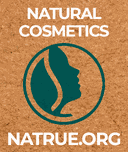
Natrue
Certifie que les produits ne contiennent que des
substances naturelles ou transformées d’origine naturelle, de préférence biologiques
. Il exclut parfums et colorants synthétiques, produits d’origine pétrochimique (paraffines, PEG, -propyl-, -alkyl-, etc.), silicones, OGM…
- l’irradiation des produits finis et des ingrédients, l’expérimentation animale pour les produits finis sont interdites
- les procédés de fabrication autorisés sont limités et respectueux de l’environnement.
- la transformation des substances naturelles se fait selon des procédés physiologiques connus
- les aspects de développement durable tout au long la chaîne de production ainsi que le respect de la biodiversité sont pris en compte

V-LABEL
Le V-label est un label européen pour les
produits véganes et végétariens
, qui a été enregistrée en 1996 en Suisse.
Ce label garantit que le produit ne contient pas d’animaux ou de chair animale.
Il y a 2 catégories: végétarien et végane.
Vous trouvez ces catégories en dessous du label sur l'emballage des produits.
Il y a 2 catégories: végétarien et végane.
Vous trouvez ces catégories en dessous du label sur l'emballage des produits.
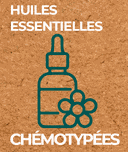
HEBBD
Ce label est un gage de qualité des huiles essentielles sur :
signifie Huile Essentielle Botaniquement et Biochimiquement Définie. Ce
label
signifie que nos huiles essentielles sont entièrement définies à la fois sur le plan botanique (organe producteur de la plante, dénomination botanique latine exacte, chémotype, pays d'origine) et chimique (une chromatographie est réalisée pour chaque nouveau lot d’huile essentielle).
Ce label est un gage de qualité des huiles essentielles sur :
- le choix du biotype le plus favorable,
- la qualité des méthodes d’extraction utilisées,
- le contrôle de l’identité et de la composition de l’huile essentielle par analyse,
- la garantie d’une huile essentielle 100% pure et naturelle.
D’autres laboratoires utilisent le label HECT, similaire à celui de HEBBD, qui signifie Huile Essentielle Chémotypée et qui est également gage de qualité des huiles essentielles sur le plan botanique et biochimique.



